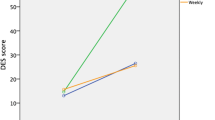Abstract.
The aim of this study was twofold: 1 – to identify a psychological profile of patients with psychogenic nonepileptic seizures (PNESs) that is possibly distinct from that of subjects affected by epileptic seizures (ESs) alone; 2 – to detect the possible differences between the clinical features and psychological profile of patients affected by PNESs alone and those of subjects in whom PNESs are associated with epileptic seizures (ES/PNES patients).
We assessed the psychological profiles of 2 different groups of subjects. The first group was of 38 patients who had all developed PNESs after epileptic seizures (ES\PNES, group 1). The second group was of 31 patients with PNESs alone (PNES, group 2). We compared the psychological findings of each of these 2 groups with those of 2 control groups, composed of patients who matched groups 1 and 2 for sex, age, and educational level, but who were affected only by ESs (groups 1C and 2C). Finally, we considered possible differences between the ictal symptoms and signs of PNESs occurring in ES/PNES and in PNES patients.
Both the ES/PNES group and the PNES group revealed higher percentages of Somatoform Disorders and Cluster B Personality Disorders (DSM-III-R diagnoses) than the ES patients in the control groups. The scores obtained on the Psychophysiological Distress Scale of the Cognitive Behavioural Assessment Battery (CBA) followed the same pattern.
Among PNES ictal phenomena, autonomic symptoms and signs were significantly more frequent in the PNES than in the ES/PNES group. The occurrence of PNESs mimicking generalised tonic-clonic ESs (GTC-PNESs) was significantly associated with a low academic level.
The results of this study suggest that the patients with PNESs alone and those affected by PNESs and ESs share the same psychological profile, which is different from that of patients with ESs alone. However, some differences between ES/PNES and PNES patients were found in the clinical semiology of their PNESs. Our findings could have implications for the diagnosis and for the treatment of patients with PNESs.
Similar content being viewed by others
Author information
Authors and Affiliations
Additional information
Received: 26 March 2002, Received in revised form: 4 October 2002, Accepted: 21 October 2002
Correspondence to Dr. C. A. Galimberti, M.D.
Rights and permissions
About this article
Cite this article
Galimberti, C., Ratti, M., Murelli, R. et al. Patients with psychogenic nonepileptic seizures, alone or epilepsy-associated, share a psychological profile distinct from that of epilepsy patients. J Neurol 250, 338–346 (2003). https://doi.org/10.1007/s00415-003-1009-0
Issue Date:
DOI: https://doi.org/10.1007/s00415-003-1009-0




